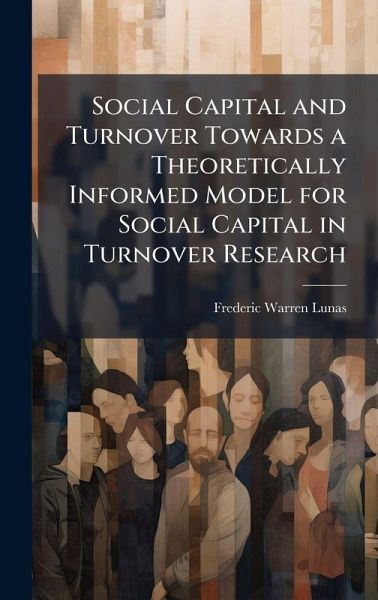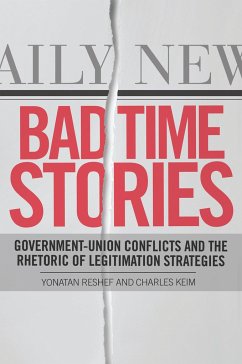
Social Capital and Turnover Towards a Theoretically Informed Model for Social Capital in Turnover Research
Versandkostenfrei!
Versandfertig in über 4 Wochen
29,99 €
inkl. MwSt.
Weitere Ausgaben:

PAYBACK Punkte
15 °P sammeln!
In the United States, and around the world, social capital is becoming an intriguing new focus for slowing the declining sense of community and community trust. This strengthening focus on social capital in empirical study has great potential for an important role in U.S. public policy, as policy changes focused on increasing social capital may decrease turnover. Yet, according to researchers, not enough sufficiently tested empirical measures of social capital exist. Combining several existing measures should provide a theoretically informed measurement of social capital for turnover research ...
In the United States, and around the world, social capital is becoming an intriguing new focus for slowing the declining sense of community and community trust. This strengthening focus on social capital in empirical study has great potential for an important role in U.S. public policy, as policy changes focused on increasing social capital may decrease turnover. Yet, according to researchers, not enough sufficiently tested empirical measures of social capital exist. Combining several existing measures should provide a theoretically informed measurement of social capital for turnover research with application to the U.S. Military. Within this context, this thesis incorporated survey responses into a predictive model of intent to turnover, incorporating a social capital variable, based on the several of its historical measurement studies. This work has been selected by scholars as being culturally important, and is part of the knowledge base of civilization as we know it. This work was reproduced from the original artifact, and remains as true to the original work as possible. Therefore, you will see the original copyright references, library stamps (as most of these works have been housed in our most important libraries around the world), and other notations in the work. This work is in the public domain in the United States of America, and possibly other nations. Within the United States, you may freely copy and distribute this work, as no entity (individual or corporate) has a copyright on the body of the work. As a reproduction of a historical artifact, this work may contain missing or blurred pages, poor pictures, errant marks, etc. Scholars believe, and we concur, that this work is important enough to be preserved, reproduced, and made generally available to the public. We appreciate your support of the preservation process, and thank you for being an important part of keeping this knowledge alive and relevant.












